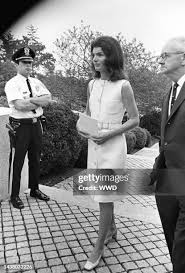The Enduring Legacy of Jackie Kennedy

Introduction
Jackie Kennedy, known for her elegance and poise, is more than just the former First Lady of the United States. She remains a significant cultural icon whose impact extends beyond the realm of politics into fashion, art, and social change. Following the recent increase in interest around historical figures depicted in media and literature, understanding Jackie Kennedy’s life and her contributions to American culture has never been more relevant.
A Woman of Influence
Born as Jacqueline Lee Bouvier in 1929, Jackie Kennedy gained international fame when she married John F. Kennedy in 1953. As First Lady, she became a symbol of grace, sophistication, and charm. Jackie was instrumental in the planning of the White House’s historic restoration and showcased the importance of art and culture in American life. Under her guidance, the White House became a center for cultural engagement, reflecting her deep appreciation for the arts.
Throughout her husband’s presidency, Jackie faced immense challenges, particularly during the Cuban Missile Crisis and, later, with the assassination of JFK in 1963. Her composed demeanor during trying times garnered her respect and admiration from the American public.
Media and Public Perception
The release of various films and books over the past few years, including the critically acclaimed movie ‘Jackie’ starring Natalie Portman, has revived interest in her life, exploring not only her public role but also her private struggles and resilience. Jackie Kennedy is often portrayed as a woman torn between duty and personal grief, which adds layers to her historical narrative.
Legacy and Continued Relevance
Jackie Kennedy’s legacy also extends to her work in the realm of fashion. She popularized iconic styles, including the pillbox hat and elegant evening gowns, solidifying her status as a fashion trendsetter. Even today, her style continues to influence designers and fashion enthusiasts worldwide.
Moreover, Jackie’s role in promoting various social causes, including the preservation of historic sites, laid the groundwork for future philanthropic efforts. She exemplified how a public figure can effect change not only through political means but also through cultural advocacy.
Conclusion
In conclusion, Jackie Kennedy remains a deeply influential figure in both American history and contemporary culture. Her blend of elegance, intelligence, and resilience in the face of personal and public adversity showcases her extraordinary character. As new generations seek to understand the complexities of historical figures, Jackie Kennedy’s life story continues to resonate, making her a timeless icon worth studying. Her contributions to culture, fashion, and social causes remind us of the power of grace and strength in shaping societal norms.









